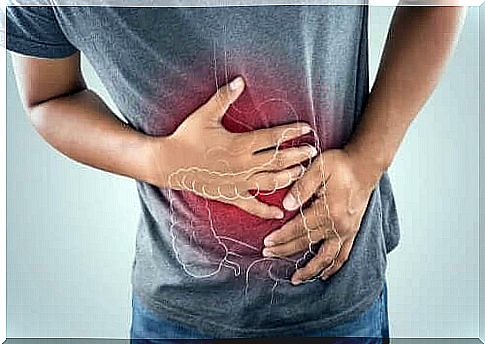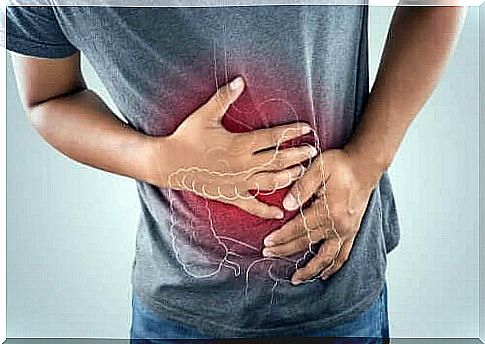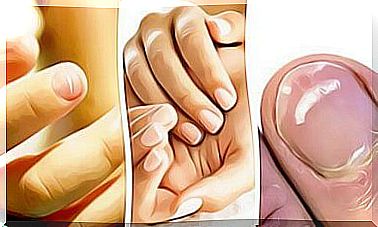Chronic And Acute Diarrhea: Causes And Treatment

In most cases, diarrhea is defined as a sudden change in bowel regularity that is different from a person’s normal rhythm. In the article below, we will tell you about what chronic and acute diarrhea is. They differ from each other in terms of their causes and treatments.
Acute diarrhea is the most common and lasts less than two weeks. Chronic diarrhea lasts more than fourteen days and is multifactorial in origin.
Chronic and acute diarrhea
Chronic diarrhea
Unlike chronic diarrhea, the acute form of this condition is usually caused by an infectious agent. Chronic diarrhea is a common problem, both during basic medical consultations and in specialist clinics.

As you probably already know, this disease is defined as any significant change in the speed of the bowel movement. These changes are assessed on the basis of the patient’s previous bowel movements. They can be assessed according to the volume, frequency of bowel movements, or changes in consistency.
The reasons
Unlike acute diarrhea – which we will discuss later – chronic diarrhea is always unpleasant and harmful to the body. Basically , it means that there has been a change in water transport in the intestines.
Therefore, reducing water consumption by as much as 1% can cause this type of diarrhea. Hence, it is known that chronic diarrhea is not contagious. However, it can also be caused by parasites responsible for long-term symptoms or infections in immunocompromised patients.
Chronic diarrhea is usually a manifestation of other diseases. These are among others:
- Colon cancer
- Ulcerative colitis
- Crohn’s disease
- Diabetes
- Pharmaceutical diseases
- Addison’s disease
Treatment
Treatment of chronic diarrhea includes treating its root cause. For example, if it is caused by celiac disease, the patient should follow a gluten-free diet. However, if diarrhea is a symptom of some form of infectious enterocolitis, treatment will require antibiotics.
Doctors use general, less specific treatments in three situations:
- As initial or temporary treatment until diagnosis is made.
- When several diagnostic tests do not show a definitive diagnosis.
- In cases where an accurate diagnosis has been made for which there is no specific or effective treatment.
Acute diarrhea

“The risk of diarrhea is that you may become dehydrated.”
According to the World Health Organization (WHO), acute diarrhea is the excretion of liquid or semi-liquid stools more than three times in 24 hours. In children, the condition is more difficult to identify. This is because babies may pass a few liquid stools a day, which does not necessarily mean they are suffering from diarrhea.
Acute infectious diarrhea includes inflammation or dysfunction of the gut. Usually it is caused by a certain microorganism or its toxins.
The diarrhea generally lasts less than 14 days. However, it does involve three or more bowel movements a day. The stools are usually less consistent than normal, and the condition itself can include other symptoms such as nausea, vomiting, stomach pain, and fever.
Unlike chronic diarrhea, acute diarrhea is caused by the body’s own defenses. For this reason, diarrhea itself is not harmful, as its purpose is to ‘treat’ the infection.
The reasons
The main cause of acute diarrhea is infection. People usually become infected through contaminated food or water that passes the faecal or oral route.
In most cases, episodes of diarrhea will clear up on their own, meaning there is no need to treat them. The major microorganisms causing infectious diarrheal episodes vary depending on the age and state of health of the patient.
Among the most common are:
- Rotavirus (in children)
- Adenovirus
- Aeromonas bacteria
- Campylobacter jejuni bacteria
- Colon Rod (E. Coli)
- Salmonella bacteria
- The bacteria of the intestinal petiole
Treatment of acute diarrhea
The primary goal of treatment is to prevent or improve dehydration, get rid of symptoms and control infection. Fluid replacement is a common treatment for all episodes of diarrhea. The doctor may administer them orally or through a cannula.
Using probiotics is also a good idea. This is because they increase the amount of bacteria that are good for our gut, helping to eliminate infectious agents. This, in combination with a strict and light diet, is the main line of treatment for acute diarrhea.
On the other hand, an anti-diarrheal drug such as loperamide tends to reduce the number of stools and limit water and electrolyte loss. These drugs reduce intestinal motility and slow down movement in the intestines. They also provide minimal effect in reducing the amount of intestinal secretions. However, in some cases it is not a good idea to use medications as they prevent the body from cleansing itself naturally.
It is also important to mention that antibiotic treatment is quite controversial. Most cases of acute infectious diarrhea are ultimately mild and clear up on their own, so our body doesn’t really need medication.









